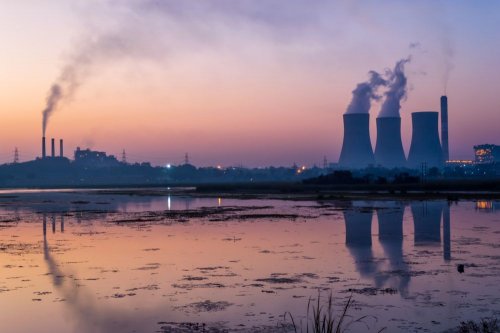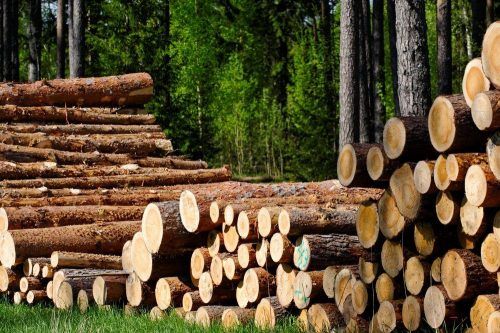Two years ago, the Cabinet of Ministers of Ukraine announced the start of the forestry reform. Speaking about its progress and results, government officials often emphasize the growth of revenues from timber sales. The scale of logging and revenues may increase due to Resolution No. 454 “Some issues of forestry during the period of martial law and amendments to the Resolution of the Cabinet of Ministers of Ukraine No. 724 of May 12, 2007”. The Cabinet of Ministers approved it on April 23.
The document allows for regeneration felling not only in artificial single-age forests, but in any forest at all, if the bulk of one tree species occupies 70% or more of the area.
Reclamation felling is intended to transform an artificial single-age forest into a mixed forest similar to a natural forest: individual trees are cut down and replaced with trees of a different species and age. In this way, the forest gradually becomes a full-fledged ecosystem.
But environmentalists are sounding the alarm – due to changes in logging, Ukrainian old-growth forests are facing the threat of extinction. EcoPolitic investigated the situation.
What is wrong with the resolution?
Representatives of nature protection organizations spoke against Resolution No. 454. They believe that changes to the use of reshaping logging will increase the logging of natural old-growth forests, as loggers will be able to log anywhere, even in protected areas.
"There is a risk that the new regulation will unjustifiably increase felling and increase corruption in the industry. At the same time, the new version of the regulation contradicts Ukraine's European integration obligations and exacerbates the likelihood of further international scandals in the case of timber harvesting in ancient natural forests and other valuable forest ecosystems." – noted in WWF-Ukraine.
People's deputy Yuliya Ovchynnikova said in a comment to EcoPolitics that last year, 62 thousand cubic meters of forest were illegally cut down with reshaping logs.
"In 2023, my team together with the NGO "Ukrainian Nature Conservation Group" conducted an investigation. We discovered 204 illegal fellings in forests of different ages and varieties with a volume of more than 62,000 cubic meters. This is about 1,800 truckloads of wood. Currently, criminal proceedings are being conducted on this fact," she said. narcissist
Ovchinnikova sent her proposals to the Ministry of Environment regarding the reshaping of cuttings, but she has not yet received a response to them. According to her, no forest management documents for the specified type of felling have been approved during the last month. But they do not make changes to Resolution No. 454, which would limit the reshaping logging exclusively to forests of artificial origin.
Nardepka noted that it is currently difficult to establish whether reshaping is being done in natural forests, because foresters hide information.
"The State Forestry Agency and the Ministry of Environment ignored my proposals for the resolution that introduced the electronic logging ticket. We asked to make public copies of the documents that were submitted to obtain it. However, the foresters decided to hide it further. Therefore, neither I nor the public can check online: in the natural forest are being chopped or artificial," Ovchinnikova said.
Conflicting norms of the resolution
Resolution No. 454 officially carries with it a great benefit for Ukrainian forests: the document banned solid felling for main use in the Carpathian mountain forests. But the ban will come into effect only three years later – in 2027.
"This really means that you will no longer see the "bald" Carpathians," the press service of the State Forest Resources Agency emphasized.
The Ukrainian Nature Protection Group believes that the information about the specified ban on continuous felling is a manipulation, because thanks to the decree, the forest will be cut down wherever it wants.
"The phrases "continuous logging will be prohibited" or "you will never see the bald Carpathians again" are outright lies. Continuous logging will not go anywhere, they will simply be called something else," emphasized Petro Testov, head of the expert department of the NGO "Ukrainian Environmental Protection Group".
Sad consequences
Yuliya Ovchinnikova claims that the actions of forestry officials lead to the degradation of artificial forests.
"Instead of carrying out reshaping cuttings in artificial forests, they cut down where the wood is more valuable. For example, instead of adapting artificial forests to climate change, some Lviv foresters turned natural protected and protective high-altitude forests into a place for commercial wood harvesting," said the deputy.
Ovchinnikova added that the consequences of abuses during the felling will be disappointing for the process of Ukraine's integration into the European Union.
"The new EU regulation on deforestation – EUDR – will enter into force next year. According to it, timber harvested in an illegal and unsustainable way will not be allowed on EU markets. The more problem logging, the worse the status of the country from the point of view of the EU. If Ukraine falls into a high-risk zone, it will be a problem, including for woodworkers. They will be forced to conduct lengthy and costly additional inspections by independent experts," the deputy said.





